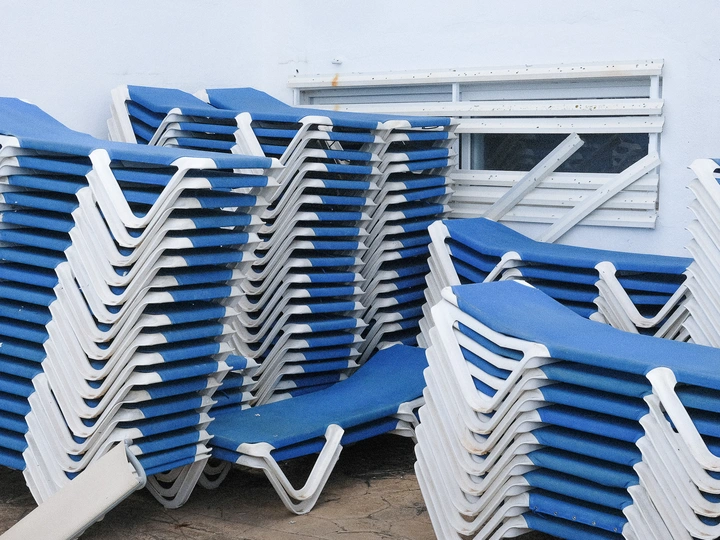Sol Meliã's Anti-Conquest

Émile lacopo Jourcin did Bachelor in IUAV University of Venice and Master's degree at EPFL in Lausanne with a thesis titled Speculative Coastlines together with Melina Schechinger. He worked at Studio Albori in Milan, at Ruralurban carpentry in Bolzano and in renovation with GRCA in Venice. His interests concern different spheres but constantly revolve around the field of landscape.
Melina Schechinger is enrolled in the Master of architecture programme at EPFL and is writing her thesis Speculative Coastlines, together with Émile Iacopo Jourcin, on the touristification of the Mediterranean coast. Before, she studied in Munich and London and worked in offices in Germany, Spain, France and Belgium. She is interested in how economic power structures affect the production of space and in the implementation of non-extractive materials. She loves the sea and forests.
We published the article 'Around the Pool' for L'Atelier Magazine in 2025.
We are now trying to share our research and find ways to keep alive research-based practices while entering again in the working environment.
Tourism is a leisure activity that presupposes its opposite: the labor force. By borrowing Pratt’s terminology, Anti-Conquest, we assert this reliance on others’ exploitation and seek to diverge from the existing conditions. Our proposal derives from the MA Thesis at EPFL and aims to continue researching and creating shared knowledge on tourism degrowth.
The need to reconceive hospitality stems from an increasing supply of luxury along the Mediterranean coasts, losing the democratized right to vacations. Another concern is the deregulation of the housing market driven by platforms such as Airbnb. These trends generate a political economy in which spaces, as well as clients and maintainers, are commodified and abstracted. To address these challenges, we focused on a building typology in crisis, which offers temporal vacancy and is subject to polemic disputes: the Coastal Hotel.
After a theoretical dissertation titled 'Speculative Coastlines', we developed a counterproposal for the last 3-star hotel owned by Meliá Hotels International on Menorca, the Hotel Sol Milanos Pingüinos, which offers a potential example for sites that are currently being expanded into 5-star resorts or demolished altogether. The building leased by workers would include both permanent living units and short-term accommodations. Benefiting from the collectivization of housekeeping amenities former hidden labor spaces are turned into common areas to enable mutual coexistence. The project is in service of taming tourism and its progressive externalization of social and environmental problems in the pursuit of ever-greater profit, granting the island’s inhabitants access to the seaside.
The project can be seen as an architectural strategy design rather than a traditional building design. It was presented on a banner intended for use at protests. We envision showing it to Melia International, acting as consultants and activists, longing to diverge from the current models of the tourism industry.